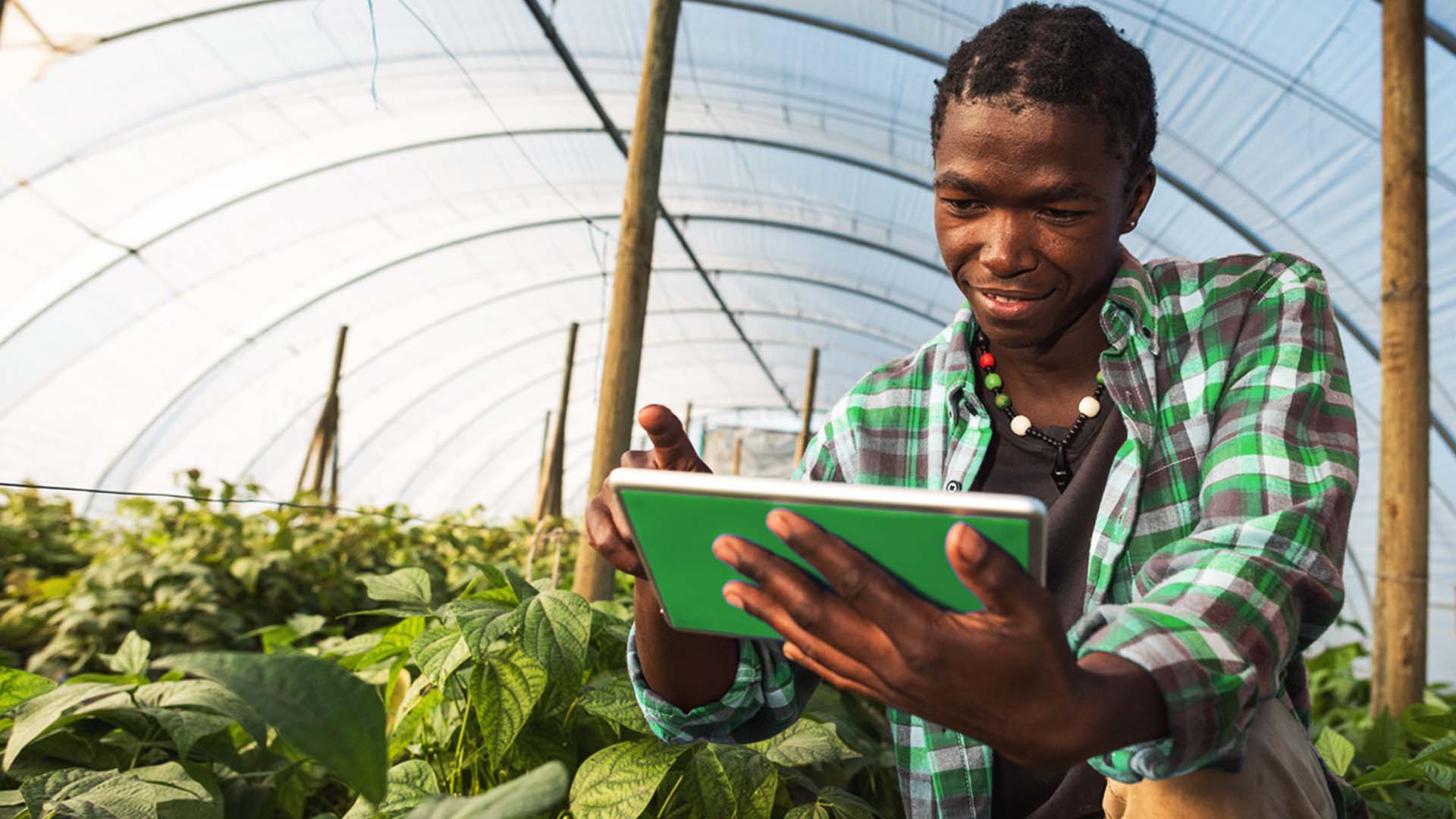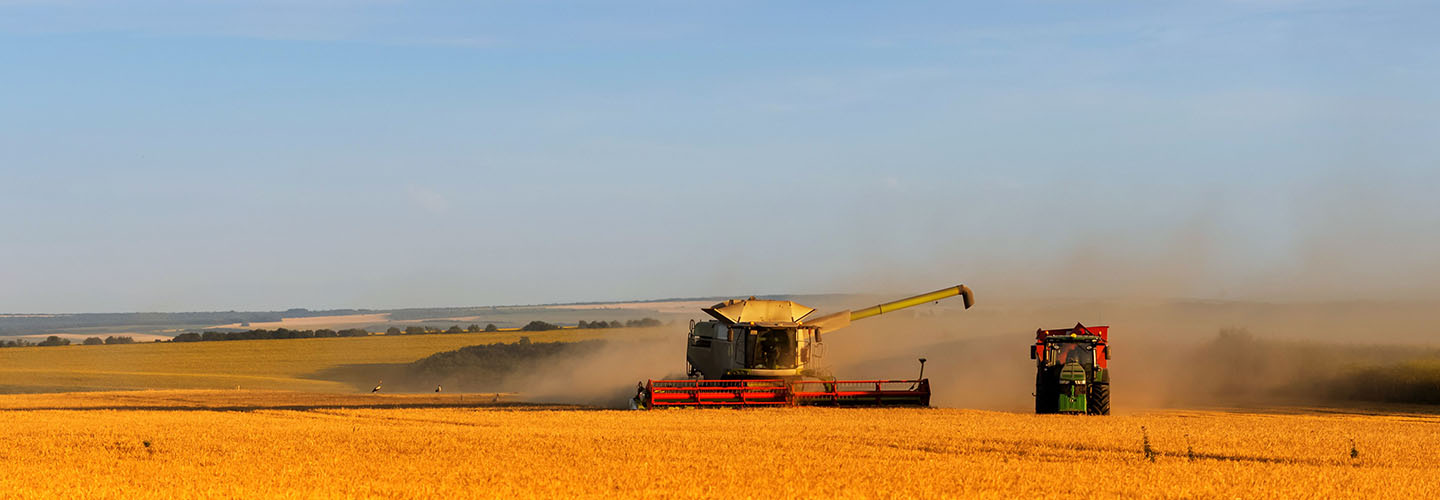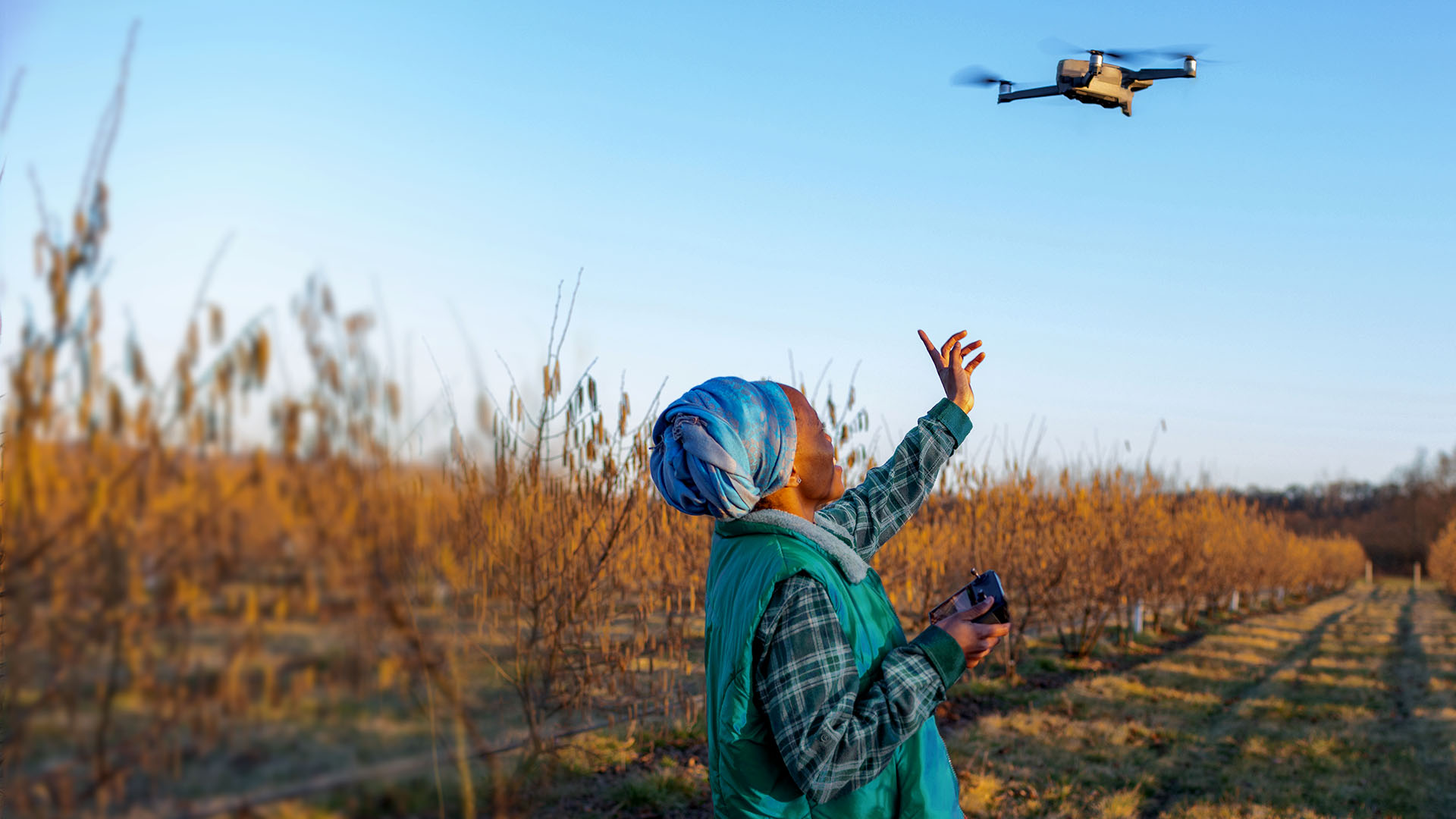There’s no denying it anymore. Climate change is one of the biggest threats to the well-being of all life on the planet. In recent years we have witnessed catastrophic droughts, storms, fires, floods, resource scarcity and species loss in various parts of the world. All of this is a result of climate change, which now tops the list in the World Economic Forum’s recently published Global Risks Report 2022.
Agriculture is one the sectors hardest hit by climate change. In fact, agriculture is both a contributor to climate change and a recipient of the ill effects of changing weather patterns. One of the solutions to this challenge is encouraging farmers to farm in a sustainable way.
A warming world
One of the key contributors to climate change is a world that is increasingly warming up. Over the past century, average surface temperatures on Earth have increased by more than 1.1°C due to increased atmospheric levels of greenhouse gases such as carbon dioxide and methane. Greenhouse gas emissions, most of which are caused by the burning of fossil fuels for electricity, heat and transport, are responsible for global warming.
Drastic measures need to be taken to confront this challenge. While some nations deny the true extent or causes of climate change, others are implementing measures to reduce the levels of greenhouse emissions in the atmosphere.
What is sustainable agriculture?
Sustainable agriculture is farming in sustainable ways to meet society’s present food and textile needs without compromising the ability for current or future generations to meet their needs. Some of the most common techniques for sustainable agriculture include improved soil health, crop rotation and growing plants that can create their own nutrients to reduce the use of fertilisers.
Our approach is a combination of driving awareness and engaging our clients on sustainable practices
Another common technique is mixing crops, which reduces the risk of a disease destroying a whole crop and decreases the need for pesticides and herbicides. Sustainable farmers also use water management systems that conserve water and alternative-energy sources such as solar power to reduce gas emissions. Sustainable farming methods can lead to increased climate resilience and improved margins over time, making the farming enterprise profitable and securing the livelihood of farmers.
Essentially, this is an integrated system of plant and animal production practices. When developing agriculture within sustainable food systems, it is important to develop flexible business processes and farming practices that are environmentally and financially sustainable.
Nedbank supports sustainable agriculture
Nedbank, with our business values entrenched in sustainability, takes pride in being involved in sustainable agricultural projects. Our long-term partnership with the World Wildlife Fund (WWF) through the Green Trust highlights this, and so does the Nedbank Sustainable Agriculture Programme, focused on the rehabilitation of major water catchment areas important to both agriculture and local communities.
We realise that farming is crucial to meeting the rising demand for food production, helping alleviate poverty, creating social inclusion and ensuring the sustainability of the environment. But for this to happen, agriculture needs to change. This change must include transformative and innovative interventions across the entire farm lifecycle – from production to consumption. It must involve large-scale behavioural change, as well as scientific and technological solutions. Food waste is another area of focus, and the recovery of surplus food not only helps with hunger alleviation but is also one of the most effective ways in combatting greenhouse gas emissions.
We look to partner with our clients for the long haul and help them make the transition
Our support for sustainable agriculture is in line with the United Nation’s Sustainable Development Goals of ending world hunger, achieving food security and improved nutrition, and promoting sustainable agriculture. Nedbank understands its responsibility in driving change and helping create the future we want, so it makes sense to do this through our lending as a bank. Our approach is a combination of driving awareness and engaging our clients on sustainable practices and then backing this up with financial products and customised solutions that help our clients make the transition.
Financing sustainable farming
Apart from solutions customised to individual circumstances, some of the financing support Nedbank offers farmers transitioning to sustainable agriculture include the following:
Shade-netting financing
Shade-netting financing is suited to tree crop farmers to help improve the yield of underperforming orchards, reduce sunburn, improve fruit quality, and protect them from natural hazards such a hail and wind, while saving water and energy and reducing fertiliser application. The repayment term of the loan is 5 years (60 months).
Renewable-energy financing
If you want to mitigate the impact of load-shedding and rising energy costs, various renewable-energy finance options can be tailored to your needs, with extended repayment terms of up to 10 years on business loans. You will not only make your business eco-friendly but could also potentially set off surplus power to the grid and put the money you save on energy costs to good use.
Water-energy financing
We also offer finance for irrigation with a focus on water efficiency. This includes the latest water application technology and other related expenses such as variable speed irrigation pumps, which help to save water and energy.
Transformation in stages over time
At Nedbank we understand that agriculture is a long-term investment. We look to partner with our clients for the long haul and help them make the transition towards a sustainable and inclusive sector.
As your partner for growth and a bank that takes your money seriously, we have the expertise and financial solutions to help you transform and grow your business.
Sustainability and transformation are 2 key focus areas, and we offer customised solutions to support you on this journey.
Our partnership approach is an important foundation, and we collaborate with a wide range of stakeholders, including industry bodies and government, to help mitigate business risk and develop sustainable funding models.
Sustainable agriculture is now more important than ever. Make the right decisions to ensure that your agribusiness stays afloat.
Send us an email to learn more about Nedbank sustainable-energy finance for agriculture.








